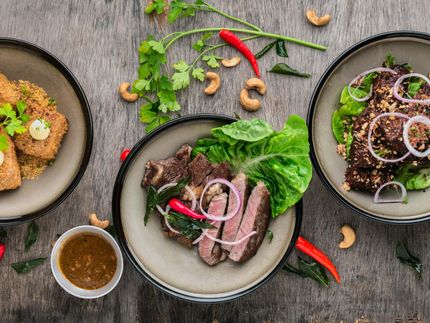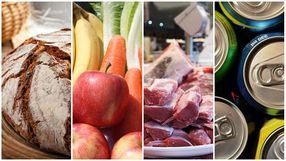Britons fear rise in cost of fish and chips due to Iceland strike
Advertisement
Britain's national dish could be about to take a hit, all because of little Iceland.
A strike by fishermen in Iceland could see the price of fish and chips soar in Britain in the next few weeks.
Trawlers in Iceland have been on strike since December, demanding a higher share of profits for their catch. Britain is the main export market for Icelandic fish - particularly fresh cod and haddock.
At Grimsby fish market, Britain's largest importer of fresh Icelandic fish, supply has dropped by half this week, the Press Association reported Saturday.
The market has also been forced to cut one-fifth of its workforce.
Martyn Boyers, chief executive of the group that operates Grimsby, warned: "It is a question of how long the strike goes on and the longer it goes on, the worse it gets."
He told PA: "In due course there will be a knock-on effect as there will be less fish available and if the demand stays the same then generally the price will go up."
Iceland provides an estimated two-thirds of the fish sold at Grimsby and stocks are down 50 per cent.
According to the National Association of Fish Friers, the deep-fried match made in heaven dates back to the mid-19th century.
While Jewish immigrants introduced fried fish to London as early as the 17th century, one of the earliest noted records of fried fish is to be found in Charles Dickens' "Oliver Twist," published in 1837, where he referred to a "fried fish warehouse."
From the 1870s, the fish and chip trade spread rapidly, especially in London and cotton and wool manufacturing towns as it was a quick and easy meal for factory and mill workers.
According to one legend told by the association, British soldiers identified each other during the D-Day landings by calling out "fish," and the response or password was "chips." (dpa)
Most read news
Other news from the department politics & laws

Get the food & beverage industry in your inbox
By submitting this form you agree that LUMITOS AG will send you the newsletter(s) selected above by email. Your data will not be passed on to third parties. Your data will be stored and processed in accordance with our data protection regulations. LUMITOS may contact you by email for the purpose of advertising or market and opinion surveys. You can revoke your consent at any time without giving reasons to LUMITOS AG, Ernst-Augustin-Str. 2, 12489 Berlin, Germany or by e-mail at revoke@lumitos.com with effect for the future. In addition, each email contains a link to unsubscribe from the corresponding newsletter.






























































